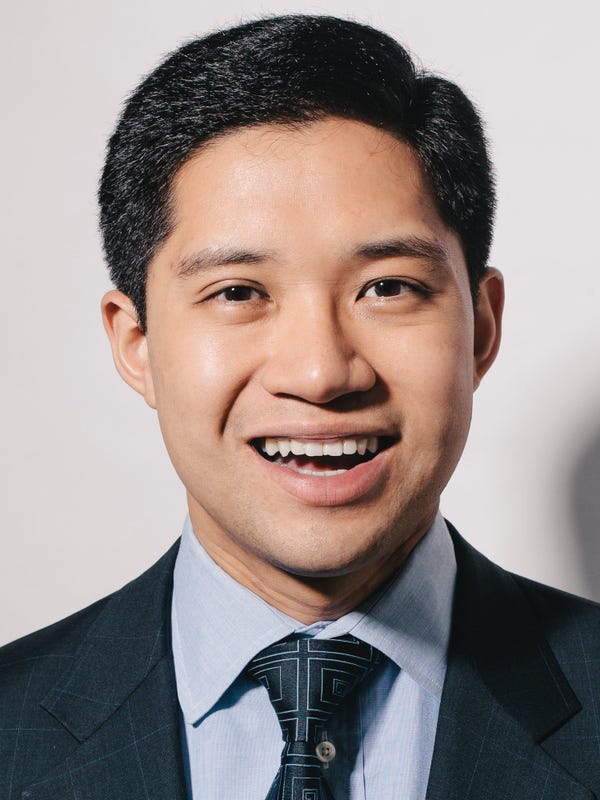In the latest "Curious Minds" column, we speak with David Lat, founder of legal news site "Above the Law" about why the legal industry is so status-obsessed
We continue our monthly column, “Curious Minds”, created by Rose Ors to tap into the minds of legal innovators, disrupters, and out-of-the-box thinkers to learn what influences and inspires their work.
In this column, Rose speaks with David Lat, the founder of legal news site Above the Law and Managing Director at Lateral Link, about his key influencers, the value of reading Tom Wolfe, and why the legal industry is so status-obsessed.
Rose Ors: Who are the thinkers and influencers outside of the legal industry that have impacted your work?
David Lat: One thread that runs through my writing about the legal profession is transparency, pulling back the curtain on institutions and the people who lead them. In this regard, I was influenced by my former boss, Nick Denton, the founder of the Gawker Media network of sites. I worked with Nick at Wonkette, an online political gossip magazine.
With Gawker, Nick was trying to shed light on the world of New York media and later, on celebrities. He was a pioneer in putting in print conversations only insiders were having — water cooler conversations outsiders were not privy to. Above the Law tries to do that for the legal industry by delving into the culture and other types of insider conversations that are important to know and can’t be found in a book.
Interestingly, I have found that many first-generation lawyers read Above the Law because they can find out about the nitty-gritty of law firm life that second- and third-generation lawyers already have learned from family dinner conversations.
Rose Ors: Who else has influenced you?
David Lat: I also include as influencers, Sergey Brin and Larry Page, the founders of Google. From inception, they described the mission of Google as organizing the world’s information and making it accessible to all. Similarly, the founders of social networks, Mark Zuckerberg at Facebook, Jack Dorsey at Twitter, and Reid Hoffman at LinkedIn, all have contributed to vastly expanding the availability and exchange of information.

I feel that prior to the advent of Google and social media, information was currency among insiders alone — now it definitely has been democratized.
Rose Ors: What books have influenced your thinking and your work?
David Lat: Another theme in my work is the role status plays in the legal profession and in life. A fantastic book on the subject of status is the philosopher Alain de Botton’s, Status Anxiety. Botton dissects the origins of status and why we are obsessed by it. He looks at its consequences, the good and the negative. He also offers ways to not let the pursuit of status unduly control your life.
Botton’s book helped me understand lawyers’ obsession with status, including mine. As a profession, we are status obsessed. We are obsessed by where our law schools place in US News and World Report annual rankings. The same holds true for the Chambers, Vault, and other legal industry rankings.
On the fiction side, the novels of the late Tom Wolfe have been an influence. He was the great chronicler of status and prestige and hierarchy in American society. He examined those themes among the New York elite in Bonfire of the Vanities, and amongst college students in I Am Charlotte Simmons.
Reading Tom Wolfe influenced me to explore status in my novel, Supreme Ambitions. The book is about a young lawyer who desperately wants to be a Supreme Court clerk; and her boss, a lower court federal judge, who desperately wants to be a Supreme Court Justice. Although the story centers on their relationship as mentor and mentee, it is also about ambition and what ambition can do to a person.
Rose Ors: Where do you get your most creative ideas?
David Lat: Many of my ideas come from taking things that are already out there and applying them to a new realm. Often those ideas come from magazines. My head is like a Pinterest board where I pin up features from magazines and think, “That’s an interesting idea. I wonder if I can tweak it and apply it to the legal realm?”
Rose Ors: What are some examples?
David Lat: Underneath Their Robes, my first blog, was taking a People Magazine sensibility and applying it to federal judges. A lot of the features of Above The Law also are derived from magazines. For example, Architectural Digest, like other interior design magazines, have features that take you inside the homes of famous people. In Above The Law, we have a feature, Lawyerly Lairs, where we look inside the homes of prominent members of the legal community.
Rose Ors: What is a big picture question facing the legal industry?
David Lat: Will the ethics rules continue to protect the legal industry from disruption, or will these rules be revised to allow for a freer market for legal services?
I think one reason the legal industry has not changed as quickly as other sectors is because it is highly regulated. You have a number of rules aimed at restricting who may be owners in a law firm. These rules were designed to protect consumers and to protect the ethics of the profession. But, let’s be honest, some of these rules also protect the legal industry in a very cartel- like way.
These rules raise the prices for legal services by prohibiting more people from entering the field or by prohibiting certain types of innovations. I just wonder how long this can go on until we reach a point where consumers, regulators, and others say, “You know what, it’s time for us to loosen these things up a little bit so we can have some greater innovation.”






